The Best Nitrate Tester Kit for Betta Fish
When diving into the world of betta fish care, having a reliable nitrate tester is an absolute game-changer.
In the vibrant realm of betta fish keeping, ensuring the well-being of your aquatic pet extends beyond just feeding and occasional tank cleanups.
One paramount factor that often goes unnoticed is the nitrate levels in your betta’s environment. Unstable or high nitrate levels can quietly threaten your betta’s health, even when all else seems in tip-top shape.
So, what’s the magic tool to stay on top of this? The nitrate tester. With the right one by your side, you’re not just measuring levels, you’re taking a proactive step to ensure a perfect habitat for your betta
Join us as we delve deep into the importance of nitrates and showcase the testers that stand out in the sea of options.
Table of Contents 🦑
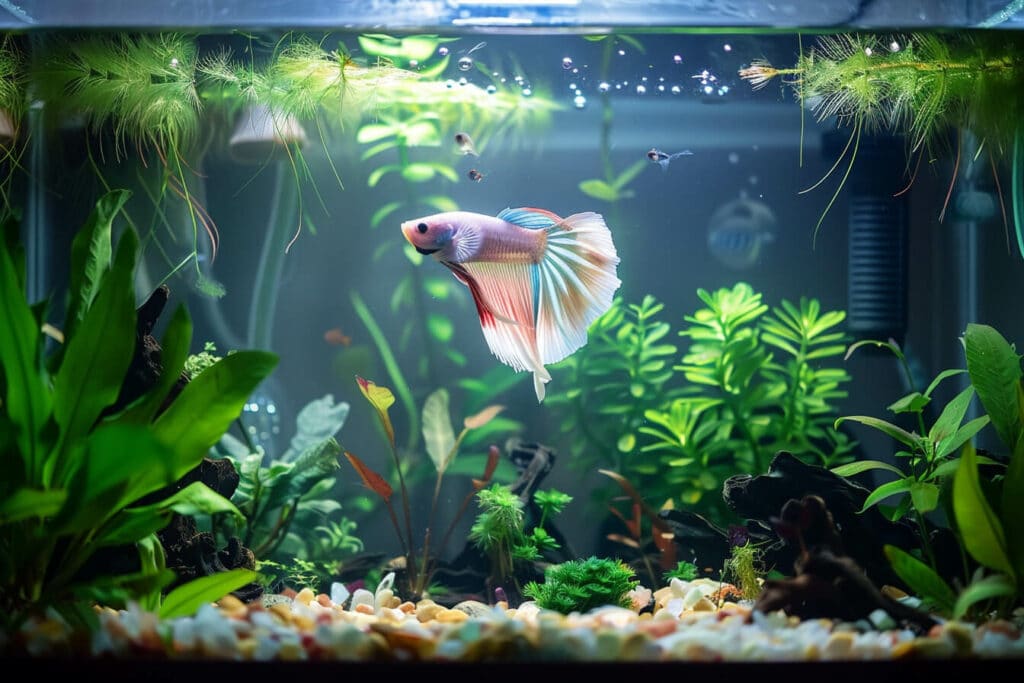
What is Nitrates?
Nitrates, often dubbed the silent killers in the aquatic realm, are the end product of the nitrogen cycle that occurs naturally in all aquariums.
Originating primarily from fish waste, decomposing organic matter, and uneaten food, these compounds transform starting from ammonia to nitrite and finally, nitrates. While betta fish can tolerate nitrates to a certain extent, excessively high levels can pose significant health risks.
Elevated nitrate concentrations can stunt growth, weaken immunity, and even lead to respiratory distress in bettas. Essentially, while nitrates might be the lesser evil compared to ammonia and nitrites, their consistent accumulation without intervention can spell trouble for your vibrant betta.
| Parameter | Ideal Range |
|---|---|
| Temperature | 78-82°F (25-28°C) |
| pH Level | 6.5-7.5 pH |
| Ammonia | 0 ppm |
| Nitrite | 0 ppm |
| Nitrate | Less than 20 ppm |
| General Hardness (GH) | 5-20 dGH |
| Carbonate Hardness (KH) | Stable levels |
| Oxygen Level | Adequate for health |
The Ideal Nitrate Levels for Betta Fish
The recommended nitrate levels for betta fish should be kept as low as possible, ideally below 20 ppm (parts per million).
However, anything between 0-40 ppm is generally considered acceptable. Levels higher than 40 ppm can be harmful to bettas and should be addressed immediately. It’s essential to keep the nitrate levels in check to ensure a healthy environment for your betta fish. Regular water changes and monitoring with a reliable nitrate tester can help maintain these optimal levels.
Why Nitrate Tester Kit and Regular Testing Are Essential?
Imagine navigating through a fog without a compass, that’s what it’s like having a betta fish tank without regular nitrate tests.
When nitrate levels soar, bettas can become stressed, more susceptible to diseases, and even experience reduced lifespan.
Regular monitoring, therefore, plays a pivotal role in ensuring your aquatic pet has a stable and safe environment to thrive. By keeping an eye on nitrate levels, you can act swiftly, adjusting conditions before they escalate into serious issues. In essence, a nitrate tester isn’t just a tool—it’s your betta’s health guardian!
Factors to Consider Before Purchasing a Nitrate Tester
Embarking on the quest for the ideal nitrate tester? Here are the compass points to guide you through:
- Accuracy and Reliability: Precision is paramount. You’d want a tester that offers accurate readings every time. The last thing you need is a misreading that could jeopardize your betta’s health.
- Ease of Use: Especially for newcomers, a nitrate tester shouldn’t resemble rocket science. Opt for a tester that’s user-friendly with clear instructions. The faster you can get a reading, the sooner you can act if needed.
- Cost-effectiveness: While you shouldn’t skimp on quality, it’s wise to consider a tester that offers good value for money. Sometimes, a more expensive tester might come with features you don’t necessarily need.
- Additional Features or Benefits: Some testers might offer multi-test capabilities, testing for parameters other than nitrates. Think about any extra features that might be beneficial for your specific setup.
Remember, the right nitrate tester isn’t just a purchase—it’s an investment in your betta fish’s well-being. Choose wisely!
How to Use a Nitrate Tester Effectively
Navigating the world of nitrate testing might seem daunting, but with the right tools and techniques, it’s a breeze. Here’s your roadmap:
- Prepare Your Equipment: Before you start, ensure all the components of your nitrate tester are clean and intact. This includes any tubes, droppers, or electronic sensors.
- Collect a Sample: Using a clean container, take a sample of the tank water. It’s best to collect water from the middle of the tank to get a representative sample.
- Follow the Instructions: Depending on the type of tester, you might have to add a reagent or dip a strip. Carefully read and follow the instructions provided by your tester.
- Wait Patiently: Once you’ve started the test, give it the necessary time to develop. Rushing might give you inaccurate results.
- Read the Results: Compare the color change (in the case of test strips or liquid tests) with the provided color chart, or check the digital reading if you have an electronic tester.
- Record the Results: Keep a log of your nitrate levels. This will help you notice any trends or sudden changes over time.
Pro Tips for Accurate Readings:
- Always test at the same time of day, as nitrate levels can fluctuate.
- Store your testing kit in a cool, dry place away from direct sunlight.
- Replace your nitrate test kit or reagents if they are expired or look suspicious.
- Regularly calibrate electronic testers to maintain their accuracy.
Armed with knowledge and the right nitrate tester, you’re all set to ensure your betta fish thrives in a pristine environment!
How to Address High Nitrate Levels?
High nitrate levels can spell trouble for your betta fish, but fear not! With the right approach, you can swiftly bring those levels back to safe ranges and ensure a healthier environment for your aquatic friend.
- Immediate Solutions:
- Water Change: The quickest and most effective way to reduce nitrates is by performing a water change. Start with a 25-50% water change using dechlorinated water, and monitor nitrate levels afterward.
- Use Nitrate Absorbing Products: There are various products, like nitrate removers or absorbing sponges, available in pet and aquarium stores. They help absorb excess nitrates from the water.
- Water Change: The quickest and most effective way to reduce nitrates is by performing a water change. Start with a 25-50% water change using dechlorinated water, and monitor nitrate levels afterward.
- Natural method Approaches:
- Live Plants: Introduce live plants like Java Fern, or Anubias, or Hornwort. They absorb nitrates and use them as nutrients. Plus, they enhance the aesthetic appeal of your tank!
- Deep Gravel Cleaning: Sometimes, waste trapped in the substrate can break down into nitrates. Regularly cleaning the gravel can mitigate this.
- Maintenance Tips:
- Limit Overfeeding: Excess food can decompose and lead to a rise in nitrate levels. Feed your betta only what it can eat in a few minutes.
- Regular Testing: Monitor nitrate levels regularly, ideally weekly, to catch spikes early.
- Proper Filtration: Ensure you have a good quality filter and clean it regularly.
- Manage Tank Population: Overstocked tanks can produce more waste, leading to high nitrate levels. Ensure your tank isn’t overpopulated and is suitable for your betta’s size.
Remember, consistency is key! Regular maintenance and vigilance can prevent nitrate spikes, ensuring your betta fish enjoys a safe, stable, and stress-free environment.
Conclusion: The Key to Happy Bettas? Vigilant Monitoring!
In the vast ocean of fishkeeping knowledge, understanding nitrate levels stands out as a beacon. Using a trustworthy nitrate tester isn’t just a recommended step; it’s a cornerstone of ensuring your betta thrives. By staying ahead of the curve and proactively monitoring your tank’s conditions, you’re not just being a responsible pet owner—you’re embarking on a journey to provide your betta with the best life possible. Dive deep into the world of betta care, and remember: the well-being of your finned friend is in your hands. Stay vigilant, stay informed, and most importantly, stay engaged in this rewarding endeavor.
FAQ: The Best Nitrate Tester Kit for Betta Fish
Q: Why is testing for nitrates in a betta fish tank important?
A: Testing for nitrates is crucial because high nitrate levels can stress betta fish, leading to poor health, lower immunity, and even death. Regular nitrate testing helps ensure the water quality is safe for your betta, contributing to a healthier and more vibrant aquarium environment.
Q: How often should I test my betta fish tank for nitrates?
Q: What is considered a safe nitrate level for betta fish?
A: Betta fish can tolerate nitrate levels up to 20 ppm (parts per million), but it’s best to aim for levels below 10 ppm to ensure optimal health and comfort for your fish.
Q: How can I choose the best nitrate tester kit for my betta fish tank?
A: Consider factors such as accuracy, ease of use, budget, and your personal preference between digital and manual testing methods. Reading reviews and seeking recommendations from other betta enthusiasts can also help you make an informed decision.
Take the Next Step in Your Betta Care Journey!
Hey there, betta enthusiast! Ready to elevate your fishkeeping game? Dive into our selection of top-notch nitrate testers right here on our website and find the perfect match for your tank.
And we’re not just here to guide your purchases. We thrive on our community’s vibrant discussions! Share your experiences, post those burning questions, or simply tell us about your betta’s latest antics in the comments section below. Together, let’s create a community where both bettas and their keepers thrive! Dive in now! 🐟🌊👇

Delighted to have you here at BettaReef! This place is a treasure trove of knowledge about Betta fish, Betta Care, Health, Gear, and much more from the wonders of aquatic life. My journey in this fascinating world began when I was just 8, and now, as a seasoned hobbyist, I’m here to help fellow Betta enthusiasts create a thriving Betta environment for a healthy life.
I’m committed to delivering high-quality content, backed by a stringent editorial process. Each product review is based on real-life usage and practical analysis, ensuring that you get insights and advice that truly matter.
Related Blog Posts:
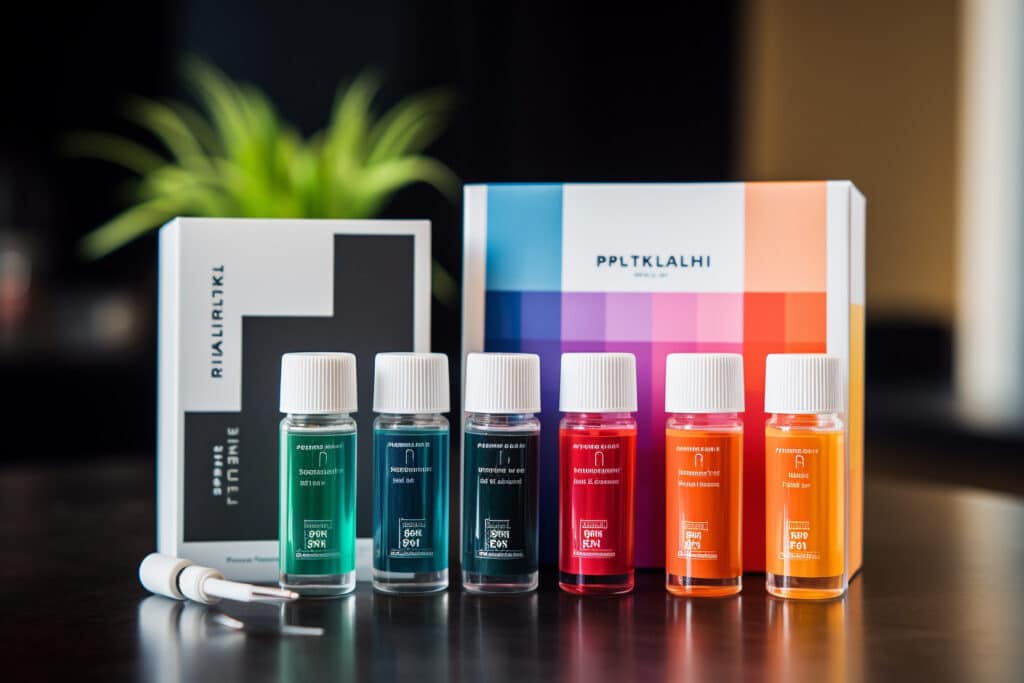
The Best Ammonia Tester For Fish Tank
The Best Ammonia Tester For Fish Tank An ammonia tester for fish tank is a
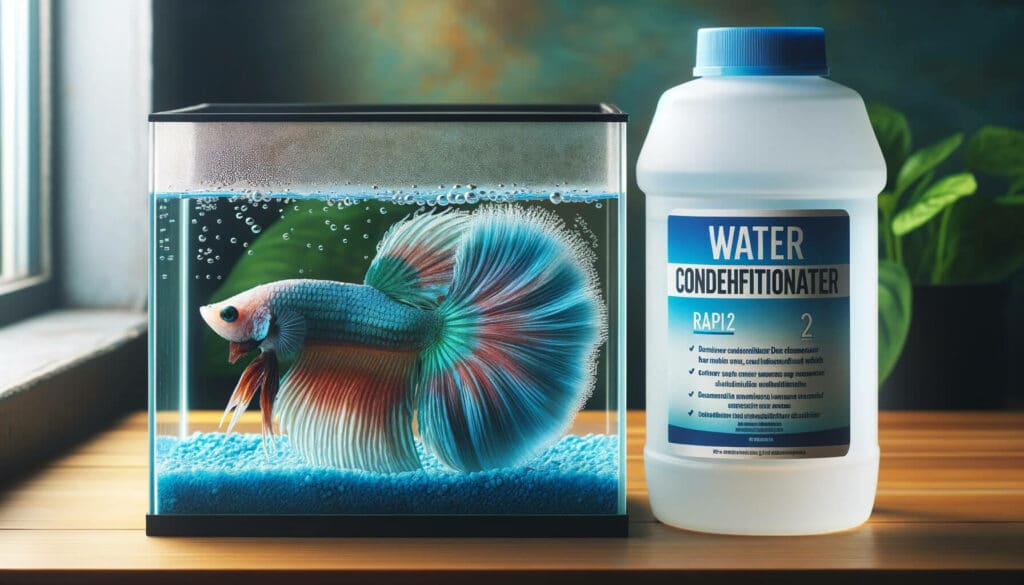
Best Aquarium Water Conditioners For Betta Fish Compared & Reviewed 2024
2024’s Best Aquarium Water Conditioners For Betta Fish Dive into our comprehensive reviews of the
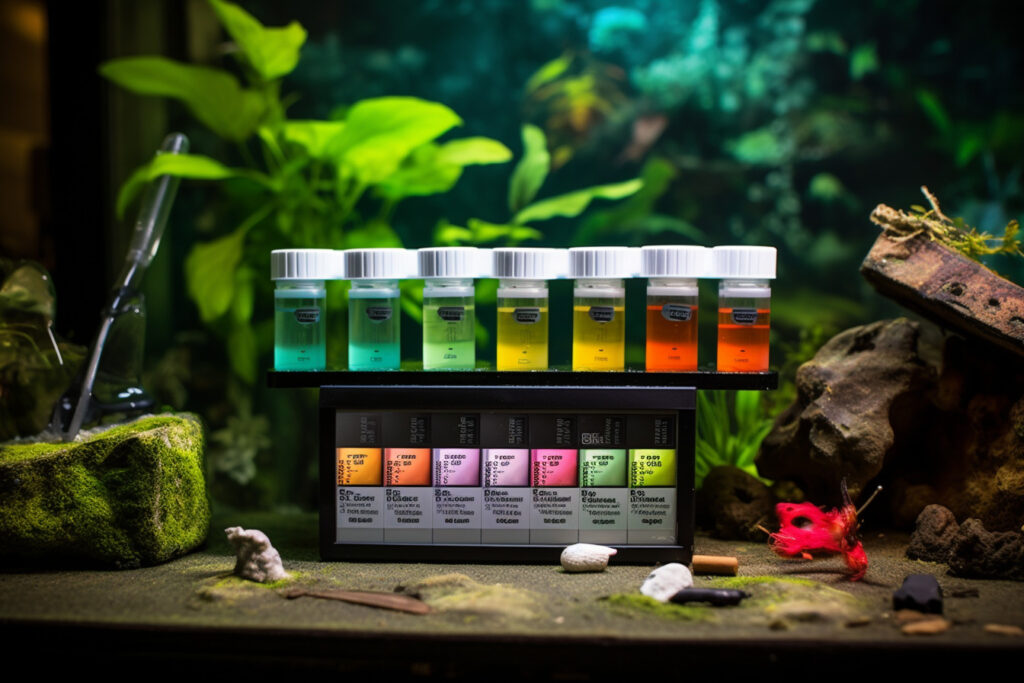
The Best Fish Tank pH Tester in 2024 for Betta Fish
2024’s Best Fish Tank pH Tester for Bettas Are you trying to Find a Reliable


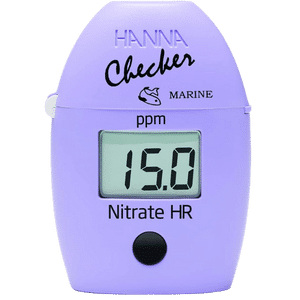
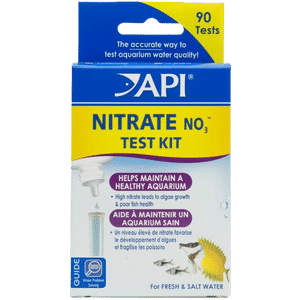
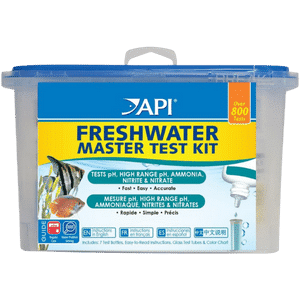
This Post Has 6 Comments
I Love your website, I will certainly come back again.
You are more than Welcome! We are waiting for you 😉
I truly relished the effort you’ve invested here. The design is tasteful, your authored material fashionable. Undoubtedly, I’ll revisit more regularly, similar to I have nearly all the time, in the event you sustain this rise.
Cheers 🙂
This website has quickly become my go-to source for Betta fish care. The content is consistently top-notch, covering diverse angles with clarity and expertise. I’m constantly recommending it to colleagues and friends. Keep inspiring us!
Thank you Abbey